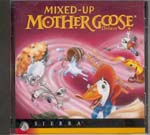Online testing tools
have become increasingly available to educational technologist
creating assessments for instructional systems, particularly those
that are designed for web-delivery, such as in distance learning
courses or corporate training portals. High-stakes and low-stakes
testing are two common applications for these tools--the former
being for graded or certifying assessments and the latter for
formative or self-assessment.
Designers of online assessments must consider carefully the effect
on motivation that feedback has. For example, suppose we were
to design a web-based
test for an undergraduate technology applications course.
As you browse the site above and ponder the questions below, consider
the importance of scheduling (when
feedback occurs), attitude (the
tone or style of feedback, as well as its emotional impact), and
outcome (what the learner should
do, or be able to do, following feedback)
1) Which of the feedback objects would
be most appropriate for a low-stakes self-assessment? Why?
2) Which of the feedback objects would be most appropriate for
a high-stakes graded test? Why?
 Mixed-up
Mother Goose is a classic exploratory-based multimedia game
designed to teach young learners basic memory skills. The game
allows the learner to wander a rich graphical environment, looking
for artifacts that relate to familiar Mother Goose rhymes. When
found, the learner carries the artifact (a sheep, for example)
back to its owner (Little BoPeep), and is rewarded for such service
with a song. Mixed-up
Mother Goose is a classic exploratory-based multimedia game
designed to teach young learners basic memory skills. The game
allows the learner to wander a rich graphical environment, looking
for artifacts that relate to familiar Mother Goose rhymes. When
found, the learner carries the artifact (a sheep, for example)
back to its owner (Little BoPeep), and is rewarded for such service
with a song.
Consider the following questions as we play along:
1) How does the game provide feedback
to the learner? Is it appropriate?
2) Are the tasks and behaviors expected of the learner explicitly
defined? Anywhere? What effect does this have on learner motivation.
|


